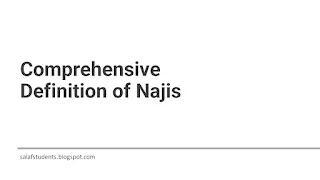Rajab Fasting Guide: Terms, Intentions, and Virtues
In the Islamic calendar, the month of Rajab is the seventh month. The month of Rajab is also included in the list of glorified months (al-asyhur al-hurum) because of some of the glory contained in it, as explained in the following word of Allah:
اِنَّ عِدَّةَ الشُّهُوْرِ عِنْدَ اللّٰهِ اثْنَا عَشَرَ شَهْرًا فِيْ كِتٰبِ اللّٰهِ يَوْمَ خَلَقَ السَّمٰوٰتِ وَالْاَرْضَ مِنْهَآ اَرْبَعَةٌ حُرُمٌۗ ذٰلِكَ الدِّيْنُ الْقَيِّمُ ەۙ فَلَا تَظْلِمُوْا فِيْهِنَّ اَنْفُسَكُمْ وَقَاتِلُوا الْمُشْرِكِيْنَ كَاۤفَّةً كَمَا يُقَاتِلُوْنَكُمْ كَاۤفَّةًۗ وَاعْلَمُوْٓا اَنَّ اللّٰهَ مَعَ الْمُتَّقِيْنَ
Meaning: "Indeed the number of months with Allah is twelve months, 326) (as) Allah decreed (in Lauh Mahfuz) when He created the heavens and the earth, of which there were four forbidden months. (Surat At-Taubah [9]: 36).
Asyhur al-Hurum means the months of Dzulqa'dah, Dzulhijjah, Muharram, and Rajab. According to Imam Fakhruddin al-Razi, the reason it is called al-hurum is that committing immorality in these months will be punished more severely. Likewise, people who do obedience will get more rewards (Al-Razi, Mafâtîh al-Ghaib, juz 16, p. 53).
One indication that something has nobility is that it has many names. For example, Allah SWT as the noblest essence and Prophet Muhammad as the noblest creature has many names. Ibn 'Arabi quotes in Syarah Tirmidhi, according to some Sufis, Allah and His Messenger (Prophet Muhammad) have a thousand names each. (Al-Kandahlawi, Aujazul Masâlik, juz 17, p. 635)
Likewise the month of Rajab. According to Sayyid Abu Bakar Syattha' in I'ânah at-Thâlibîn, 'Rajab' itself is taken from the word at-tarjîb which means to glorify because the Arabs used to glorify it more than other months. Rajab is also called Al-Ashabb which means pouring out because the goodness in this month pours out heavily. It is also named Al-'Ashamm which means deaf because in that month there is no sound of the clinking of weapons for fighting. Also called Rajam which means to throw, because in this month the enemies and devils are stoned so that they can no longer disturb the saints of Allah and the pious.
Related: Comprehensive Definition of Najis
Terms of Fasting Rajab
One of the practices that are sunnah in the month of Rajab is fasting. According to Imam al-Ghazali (d. 1111 AD), the sunnah of fasting is more emphasized on days that have glory. The moment of getting that glory is sometimes every year, every month, or every week. In the annual category, there are months of Dzulhijjah, Muharram, Rajab, and Sha'ban (Imam al-Ghazali, Ihyâ 'Ulumiddîn, juz 3, p. 431).
Rajab fasting is carried out only for a few days. Not for a whole month. Some of the Prophet's companions continued al-Ghazali, forbade Rajab fasting for a whole month because it is considered to be similar to the fasting month of Ramadhan. As a suggestion, it is better to do Rajab fasting when it coincides with the main days so that the reward is greater. As in ayyâmul bidh (13, 14, and 15), Monday, Thursday, and Friday (al-Ghazali, Ihyâ 'Ulumiddîn, juz 3, p. 432).
The Proof of Fasting Rajab
The basis for the recommendation for the four glorified months (including the month of Rajab), as emphasized by Imam Fakhruddin al-Razi in Mafâtîh al-Ghaib (juz 16, p. 54) is the following words of the Prophet:
مَنْ صَامَ يَوْمًا مِنْ أَشْهُرِ اللّٰهِ الْحُرُمِ كَانَ لَهُ
بِكُلِّ يَوْمٍ ثَلَاثُونَ يَوْمًا
Meanwhile, Sayyid Abu Bakr Syattha 'in I'ânah at-Thâlibîn quotes the following hadith:
صُمْ مِنْ الْحُرُمِ وَاتْرُكْ صُمْ مِنْ الْحُرُمِ وَاتْرُكْ صُمْ
مِنْ الْحُرُمِ وَاتْرُكْ
Meaning: "Fast in the noble months and leave it! Fast in the glorious months and leave it! Fast in the glorious months and leave it!” (HR Abu Dawud and others). The suggestion to do as well as leave the above hadith means to fast as much as possible (Sayyid Abu Bakar Syattha ', I'ânah at-Thâlibîn, juz 1, p. 307). The Importance of Fasting Rajab Regarding the virtues of fasting Rajab, Imam al-Ghazali in Ihyâ 'Ulumiddîn (juz 3, p. 431) quotes the following two hadiths:
صوم يوم من شهر حرام أفضل من ثلاثين من غيره وصوم يوم من رمضان أفضل من ثلاثين من شهر حرام
Meaning: "One day of fasting in the forbidden month (Dzulqa'dah, Dzulhijjah, Muharram, and Rajab), is more important than fasting for 30 days in other months. One day of fasting in the month of Ramadan is more important than 30 days of fasting in the forbidden month.”
من صام ثلاثة أيام من شهر حرام الخميس والجمعة والسبت كتب الله له بكل يوم عبادة تسعمائة عام
Meaning: "Whoever fasts for three days in the forbidden month, Friday and Saturday, then Allah will reward each day with a reward equal to 900 years of worship."
Fasting Rajab
Fasting Rajab is sunnah as long as it is still in the month. With a note, makruh is done for a whole month. As a suggestion, it is better to fast Rajab to coincide on the main days in the month of Rajab. As in ayyâmul bîdh (13th, 14th, and 15th), Monday, Thursday, and Friday. Fasting Rajab can also be done with one day of fasting and one day not.
For people who have a debt of fasting during Ramadan, it is permissible to make up for it at the same time as the Sunnah of Rajab. In fact, according to Sayyid Bakri Syattha '(d. 1892 AD) by quoting Al-Barizi's fatwa, if the fast is only intended to make up, then it will automatically get the sunnah of Rajab fasting (Sayid Bakri, Hâsyiyah I'ânah at-Thaâlibîn, juz 2, h). .224).
Rajab Fasting Intention
As with fasting in general, the time for Rajab's fasting intention is at night, ie from sunset until dawn. Here is the pronunciation of his intentions,
نَوَيْتُ صَوْمَ شَهْرِ رَجَبَ سُنَّةً لِلّٰهِ تَعَالَى
Nawaitu shauma Rajaba sunnatan lillâhi ta‘âlâ.
Meaning: "I intend to fast Rajab, sunnah for Allah
ta'âlâ." However, because Rajab fasting is a sunnah fasting, then for
people who forget their intentions at night, they can intend during the day,
i.e. from morning until before the sun slips (zuhur time), as long as he has
not done things that can break the fast. Here is the pronunciation of
intentions during the day,
نَوَيْتُ صَوْمَ هٰذَا الْيَوْمِ عَنْ أَدَاءِ شَهْرِ رَجَبَ سُنَّةً لِلّٰهِ تَعَالَى
Nawaitu shauma hâdzal yaumi ‘an adâ’i syahri rajaba lillâhi ta’âlâ
Meaning: "I intend to fast the sunnah of the month of Rajab today, it is sunnah because of Allah ta'âlâ."





